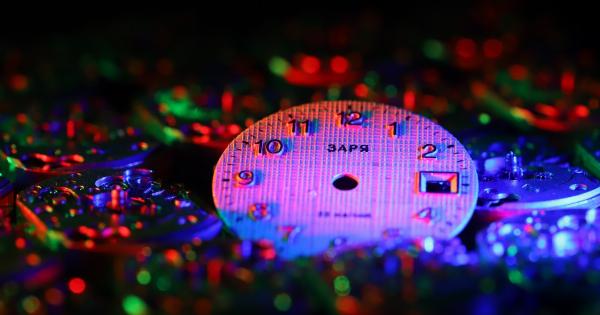Alcohol consumption is a widespread and commonly accepted recreational activity in many societies around the world.
While moderate drinking has been associated with certain health benefits, excessive or long-term alcohol consumption can have detrimental effects on various bodily systems, including the heart. One particular phenomenon that may occur after consuming alcohol is shaking, or tremors, which can be accompanied by changes in heart rate.
This article aims to explore the relationship between alcohol, shaking, and heart rate, providing a comprehensive understanding of what happens to the body in these circumstances.
Understanding Alcohol Effects on the Body
When alcohol enters the bloodstream, it affects multiple organs and systems within the body. The most notable effects occur in the central nervous system and the cardiovascular system.
The way alcohol affects an individual depends on various factors, such as the amount consumed, the person’s tolerance, their overall health, and the presence of any underlying medical conditions.
Shaking After Alcohol Consumption
Shaking, or tremors, can be a common occurrence after alcohol consumption, especially when consumed in excess. These tremors are typically the result of alcohol withdrawal, as the body becomes dependent on the substance to function properly.
When alcohol is no longer present in the bloodstream, the body may respond with trembling, shivering, or shaking as it tries to readjust and regain equilibrium.
Alcohol Withdrawal and the Heart
One of the key organs affected by alcohol withdrawal is the heart. Alcohol abuse and dependence can lead to a condition known as alcoholic cardiomyopathy, characterized by weakened heart muscle and compromised cardiac function.
When individuals experience alcohol withdrawal, which can trigger tremors, their heart rate may also be affected.
The Link Between Shaking and Increased Heart Rate
Research has shown a correlation between shaking or tremors and an increased heart rate. When the body goes into withdrawal mode and experiences shaking, the sympathetic nervous system is activated.
This system is responsible for the “fight or flight” response in the body, increasing heart rate, blood pressure, and overall arousal. As a result, individuals in alcohol withdrawal may experience an accelerated heart rate alongside their shaking episodes.
The Impact of Alcohol on Heart Rate
Even without the presence of shaking or withdrawal symptoms, alcohol alone can significantly impact heart rate. Alcohol is a vasodilator, meaning it causes blood vessels to widen and allows for increased blood flow.
This can result in a temporary drop in blood pressure and an initial decrease in heart rate. However, as the effects of alcohol wear off and blood alcohol concentration decreases, the body may respond by increasing heart rate in an attempt to stabilize blood pressure.
Other Factors Influencing Heart Rate After Alcohol Consumption
While alcohol itself can affect heart rate, other factors may come into play after alcohol consumption. Some of these factors include:.
1. Dehydration
Alcohol is a diuretic, meaning it increases urine production and can lead to dehydration. Dehydration can contribute to an increased heart rate, as the body tries to compensate for reduced fluid volume and maintain adequate blood flow.
2. Sympathetic Nervous System Stimulation
Alcohol consumption can activate the sympathetic nervous system, leading to an increase in heart rate. This stimulation may be more pronounced in individuals who are more sensitive to the effects of alcohol or those who have consumed larger amounts.
3. Coexisting Medical Conditions
Individuals with pre-existing heart conditions or other cardiovascular diseases may be more susceptible to changes in heart rate after alcohol consumption.
Conditions such as hypertension or arrhythmias can be exacerbated by the effects of alcohol, leading to irregular heartbeats or increased heart rate.
4. Alcohol Mixers and Energy Drinks
When alcohol is mixed with energy drinks or highly caffeinated beverages, the stimulant properties of these drinks can further elevate heart rate.
Caffeine, in particular, acts as a stimulant to the heart and can counteract the initial depressant effects of alcohol, resulting in a higher heart rate.
Managing Alcohol-Related Shaking and Heart Rate Changes
If you experience shaking or notice significant changes in your heart rate after alcohol consumption, it is important to take steps to address and manage these effects. Some strategies include:.
1. Moderation
Limit your alcohol intake to moderate levels, as excessive drinking can lead to more severe withdrawal symptoms and increased heart rate fluctuations.
2. Hydration
Ensure you stay well-hydrated before, during, and after consuming alcohol. Drinking water or electrolyte-rich beverages can help counteract the dehydrating effects of alcohol and may help stabilize heart rate.
3. Seek Medical Advice
If you have a history of heart problems or notice persistent abnormalities in your heart rate after alcohol consumption, it is crucial to consult with a healthcare professional. They can provide guidance and assess any underlying health concerns.
Conclusion
Alcohol consumption can have various effects on the body, including shaking or tremors and changes in heart rate. Understanding these connections is vital to promote responsible drinking and recognize potential warning signs.
While occasional shaking and modest heart rate fluctuations may be relatively common after alcohol consumption, persistent or severe symptoms warrant medical attention. Moderation, hydration, and seeking professional advice are essential steps to maintain a healthy relationship with alcohol and minimize potential risks to the heart.






























